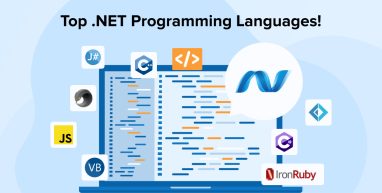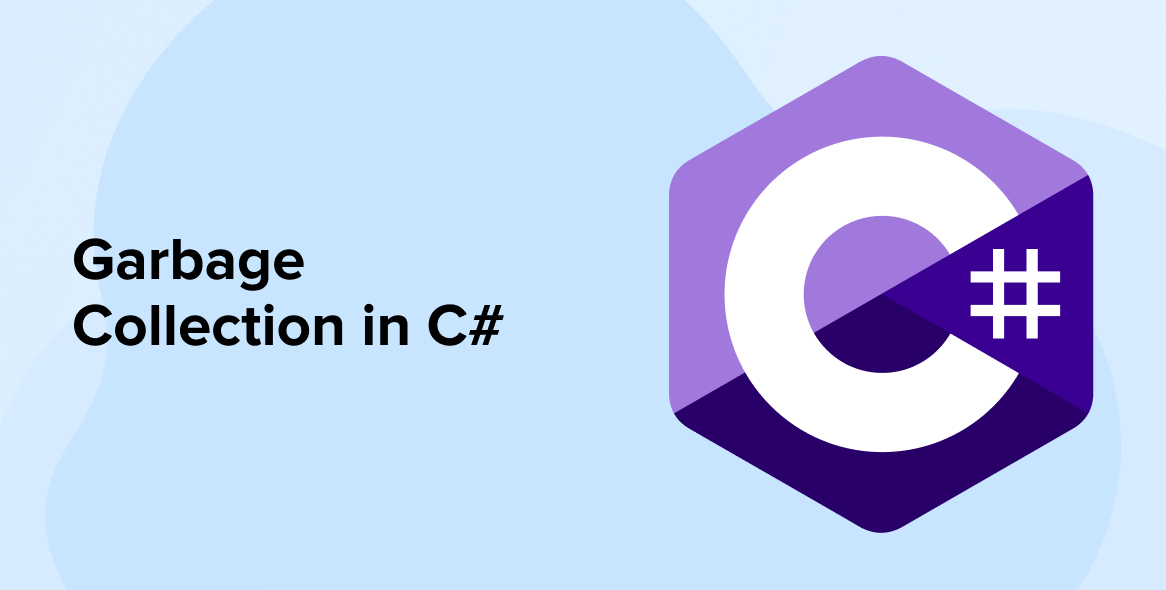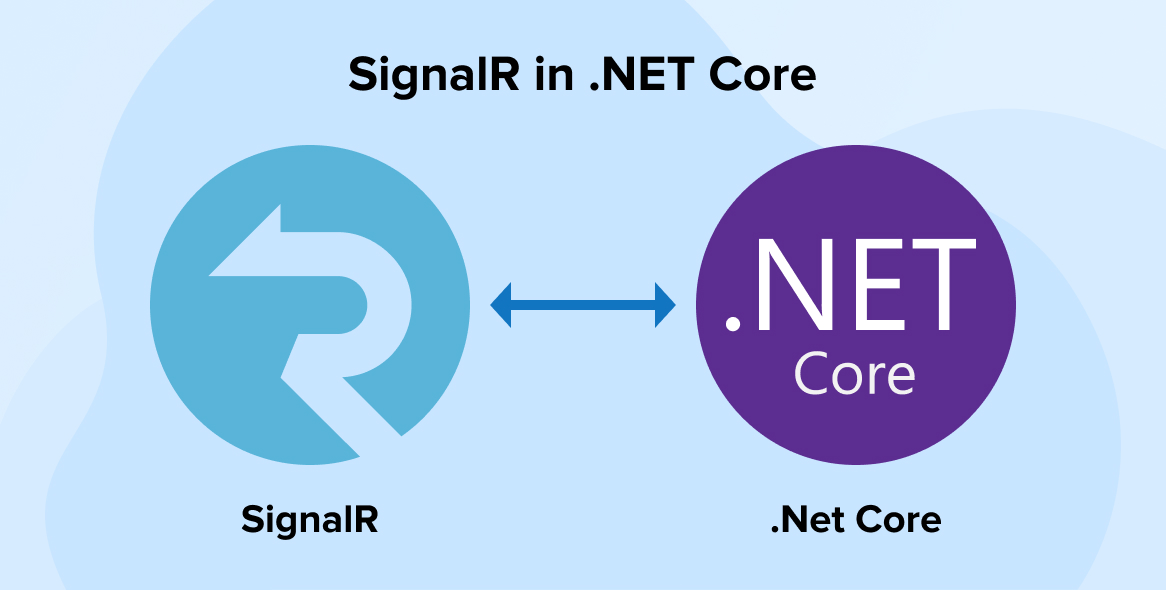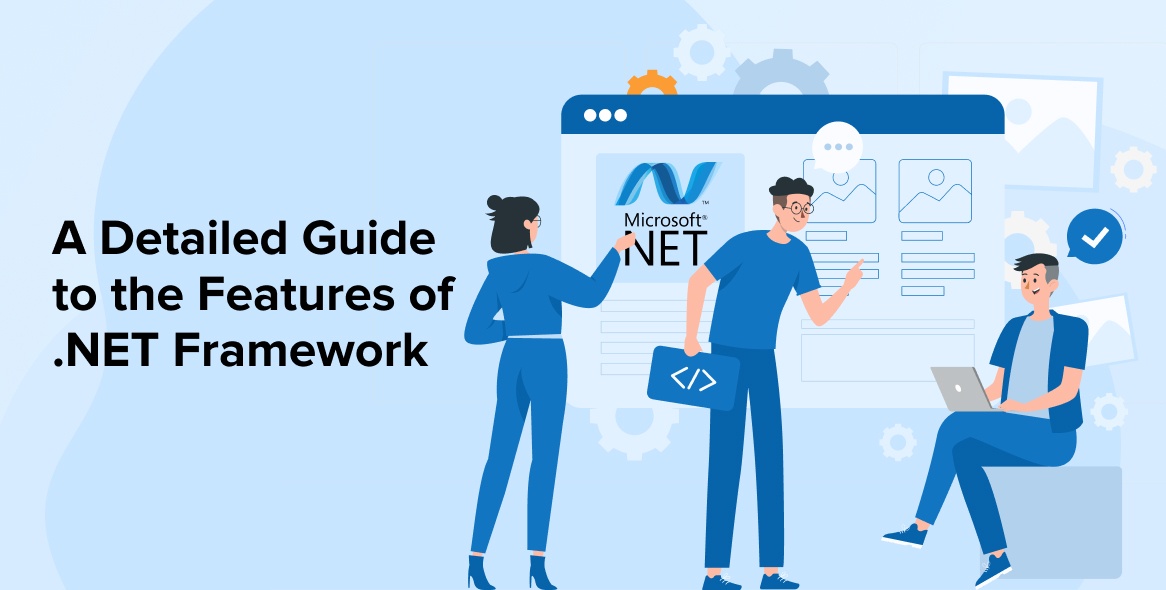
In today’s time, .NET is a framework that comes with various different programming languages, and to create them, Microsoft had to come up with the Common Language Infrastructure (CLI) specification. The CLI specifies the top features that each .NET language has to offer for this framework and how components are written in other languages. Basically, .NET Framework was created to support a theoretically infinite number of web app development languages. And in recent times, there are 20+ .NET development languages working with the .NET Framework. The top .NET development services providers use these different languages to create robust, user-friendly, and unique applications for organizations that want to reach a large user base.
.NET platform is backed up by Microsoft. The .NET framework offers various languages and C# is one of the most popularly used programming languages. But with it, C++, Visual Basic, J#, and more are also available that .NET developers use to offer unique solutions. To know more about the languages that the .NET framework has to offer and see what excellent features these languages hold, let’s go through this blog.
1. Popular Languages of .NET
Here are the top .NET programming languages –
1.1 C#.NET

C#.NET is a very popular language for application development. Since its emergence, it has maintained a strong presence in the app development market for Windows desktop. With the help of C# programming language, we can develop various types of robust and secure apps like – Windows applications, Distributed applications, Web applications, Web service applications, and Database applications. Look at the tweet by Ujjwal Chadha who is software engineer at Microsoft has to say about C# and how you can develop different things with it:
C# in underrated:
— Ujjwal Chadha (@ujjwalscript) August 29, 2022
– Frontend web development: .NET Blazor
– Backend development: ASP .NET core
– Native app development (iOS + android + windows + macOS): .NET MAUI
– Machine Learning: ML .NET
– Game dev: Unity
– Console apps: .NET 6
– Native windows: Windows App SDK
Besides this, it is a language that has been approved by ISO and ECMA standards. C# The programming language is influenced by languages like Eiffel, C++, Java, Pascal, and Modula-3.
Major Features of C#.NET:
- Automatic Garbage Collection
- Boolean Conditions
- Assembly Versioning
- Properties and Events
- Simple Multithreading
- Indexers
- Delegates and Event Management
1.2 F#

Try #fsharp folks!
— @khalidabuhakmeh@mastodon.social (@buhakmeh) August 11, 2020
It’s a mature, open-source, cross-platform, functional-first programming language running on top of @dotnet.
head to https://t.co/I1UAnLLMsj to learn more. And ping @isaac_abraham for more help. https://t.co/g9Zbd65Y5s pic.twitter.com/jLFQB1RBM1
F# is a functional-first programming language that is supported by a diverse community from various countries in the world. And it has brought an excellent change in the web development market. F# is available for the .NET developers from the F# Software Foundation. It comes with a cross-platform compiler which enables the applications to run on major GPUs, operating systems, and browsers. Besides, this language is influenced by other languages like Python, C#, Haskell, Erlang, and Scala. This means that F#, an interactive programming language can be the best solution for creating robust web applications and is also great for running code & testing it.
Major Features of F# Programming Language:
- Immutable by Default
- First-class Functions
- Async Programming
- Lightweight syntax
- Automatic Generalization and Type Interference
- Pattern Matching
- Powerful Data Types
1.3 Visual Basic .NET

There are many established businesses that have considered Visual Basic for their software solution’s core programming languages. It comes with a vast range of features that are easy to use and work with. Visual Basic .NET has a huge community of experts that share higher education establishments. Besides this, Visual Basic is used to create feature-based applications for businesses and it continues to remain a cornerstone of the industry.
Major Features of Visual Basic .NET:
- Delegates and Events Management
- Standard Library
- Automatic Garbage Collection
- Boolean Conditions
- Conditional Compilation
- Indexers
- Simple Multithreading
1.4 C++/CLI

With C++/CLI you can develop C++ programs which use .NET classes along with C++ types. It comes with many new MFC classes that are added for the developers to choose from and then compile the program into the executable file which is platform specific. Besides this, the developers can also use .NET framework classes and then compile the code into a MISL file that is platform-independent. In addition to this, with C++, a developer can easily specify the unsafe code that passes CLR.
Major Features of C++ Programming Language:
- Mid-level Programming Language
- Object-oriented Approach
- Platform Dependency
- Rich Set of Libraries
- Compiler and Syntax-based Language
- Structured Programming Language
- Memory Management System
1.5 J#.NET

J# is a product by Microsoft. Though C# is similar to J# (Java Sharp), it is not completely identical. And that’s the reason behind the emergence and increased usage of J#. The syntax of this Microsoft programming language is identical to Visual J++. But because of the legal battle Microsoft has with Sun, it had to discontinue Visual J++ and come up with J#. Basically, J# .NET is a programming language that has the capability to support Component Object Model(COM).
Major Features of J#.NET:
- Microsoft-based Class Libraries
- Java-language Syntax
- Microsoft Intermediate Language
- Cross-language integration
- Versioning and Deployment
- Security
- Debugging
1.6 JScript .NET

This language offers support for classes, types, inheritance, and compilation. And all these things enable the .NET development companies to create applications with the best performance and productivity features. JScript is a scripting language that has been integrated with Visual Studio and it takes the advantage of every .NET Framework class.
Major Features of JScript.NET:
- Function Overloading
- Class Statement
- Member Functions
- Typed and Static Variables
- Packaged Statement for creating new namespaces.
- .NET Class Library
- Inheritance and Polymorphism
1.7 IronPython

Python is a highly popular language that is very easy to read and learn. It comes with a very large community of developers that helps others gain knowledge of this programming language. And IronPython is a programming language that is a version of Python which is integrated with the .NET Framework. This means that IronPython enables Python developers to harness .NET requirements. Basically, .NET developers get a large amount of Python material with .NET access to create the right project.
Major Features of IronPython:
- Dynamic Language Runtime
- Interface Extensibility
- Common Language Interface
- Seamless Integration with other Frameworks
- Common Language Infrastructure
- Use of Python Syntax
- .NET Assemblies
1.8 IronRuby

IronRuby is an open-source interpretation programming language of Ruby. This is one of the .NET languages that is created for Microsoft common language runtime (CLR). It was developed for creating an open-source project and the source code of this language is released under the license of Microsoft Public. Basically, IronRuby is a programming language that runs on the .NET framework and offers various .NET development tools and executables to the developers. IronRuby also enables the developers to run the code on the Silverlight browser which makes the apps run smoothly and effortlessly.
Major Features of IronRuby:
- Dynamic Language Runtime
- Common Language Infrastructure
- .NET Interoperability
- Testing Infrastructure
- Silverlight Support
- Mono Support
2. Conclusion
As seen in this blog, there are multiple programming languages available when it comes to creating applications for the .NET framework. The applications created using these major .NET programming languages offer unique mobile apps, web services, desktop applications, and more. This means that these are languages that are very important and useful for .NET developers who are working on creating apps for business organizations.






Comments
Leave a message...